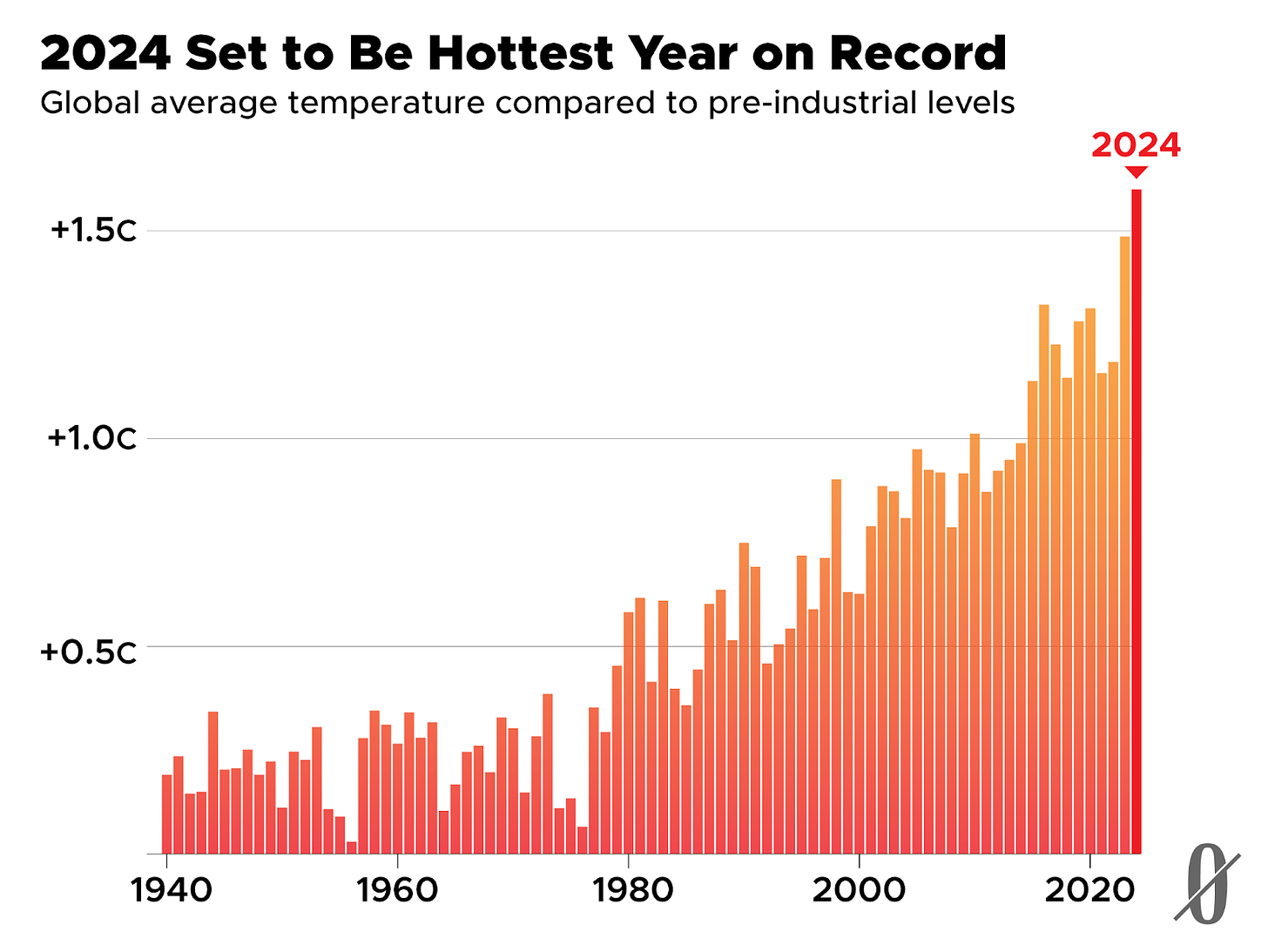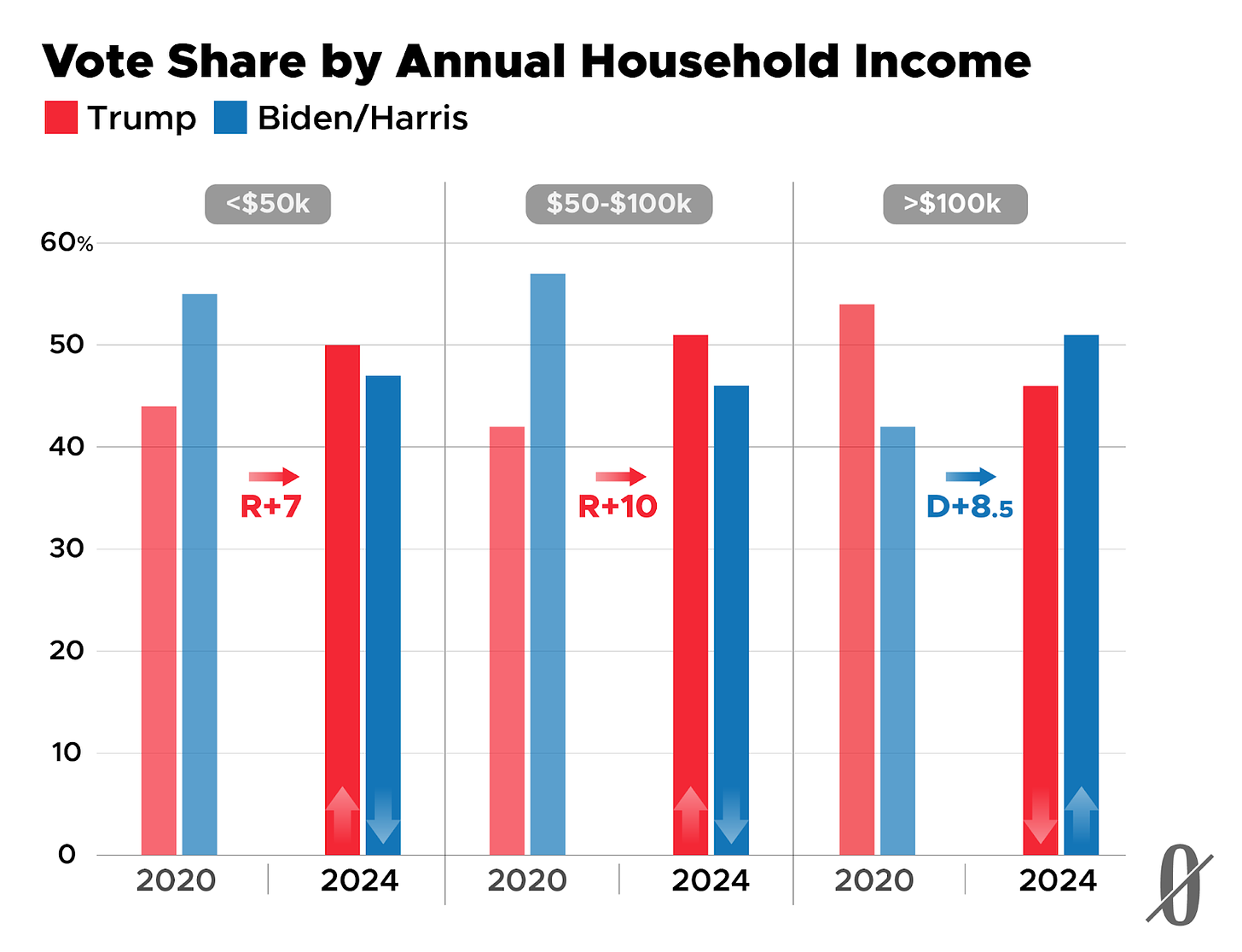How to Fight Trump Mindfully
Plus: Non-Trump news. Trump goes hawk? A setback for EVs? (Working) class-less Dems. And more!
Here’s a little-known fact that became newly relevant this week: This newsletter was originally called the Mindful Resistance Newsletter. It was founded more than seven years ago in reaction to Donald Trump’s first occupation of the White House—or, more accurately, in reaction to the reaction to that occupation, known as the “Resistance.” My view was that the Resistance was too reactive for its own good—not mindful enough, in the everyday non-Buddhist sense of being, as the Random House Dictionary puts it, “attentive, aware, careful.”
Here are the first few sentences of the newsletter’s founding mission statement:
The premise of the Mindful Resistance Project is that understanding and addressing the root causes of Trumpism is important—so important that we shouldn’t let Trump’s antics and outrages get in the way of this mission. To put a finer point on it: 1) We need to respond to each day’s news about Trump wisely—with moral clarity and forceful conviction but with awareness of the way overreactions to his provocations can play into his hands. 2) Meanwhile, we need to get a deeper understanding of the forces that led so many people to vote for Trump. These forces include globalization, demographic change, the loss of jobs through automation, and a political polarization that is grounded partly in the tribalizing tendencies of social media. This polarization is also grounded in what you might call the psychology of tribalism, in cognitive biases that afflict us all—so fostering an understanding of how our minds work will be among the goals of this project.
These aspirations have to some extent shaped this newsletter ever since, even after it became the NonZero Newsletter. After all, Trumpism didn’t end when Biden entered office, and the psychology of tribalism remains a huge problem for both the US and the world.
But in retrospect I don’t think NZN has focused on that psychology quite enough. In particular, I wish we’d spent more time talking about ways that psychological and social health can dovetail—how doing your part to help ease tribal tensions can be good for your mental health and even your spiritual growth. I plan to take the Trump II era as an occasion to do a little more talking about the psychology of tribalism, beginning with my video sermonette below.
Don’t worry: Spending a bit more time on this subject won’t crowd out traditional NZN fare; as I hope you’ve noticed, we’re starting to expand the amount of content we offer. Below the video you’ll find the familiar kinds of Earthling items (prefaced by a new format we’re experimenting with—a short bullet pointy summary of some important events this week).
OK, enough drum roll. Here’s the sermonette.
—RW
In non-Trump-related news:
—Google plans to open an AI-focused data center in Saudi Arabia, the company announced last week. The search giant says the facility will expand access to AI and improve Arabic-language AI models. Critics say it will undermine Google’s pledge to cut its greenhouse gas emissions and call into doubt the company’s promise to stop developing algorithms that facilitate oil exploration and production.
—The United States, Russia, and China are jockeying for influence in Africa and access to its resources, but, according to the Wall Street Journal, they’re increasingly getting elbowed aside by a smaller player: the United Arab Emirates. In 2022 and 2023, the UAE pledged $97 billion in African investments, from oil refineries in Uganda to copper mines in Zambia. China and the US have come up with only $29 billion and $15 billion, respectively.
—Jennifer Doudna—Nobel-Prize-winning co-creator of the gene-editing tool CRISPR—says the technology will unleash a “revolution” by allowing researchers to modify plants and animals so they can thrive in adverse conditions produced by climate change. Companies are already using CRISPR to develop more resilient food sources, such as cows that have shorter coats and so can stay cooler on hot days. “The potential is huge,” Doudna told MIT Technology Review.
—For the first time, Ukrainian forces clashed with North Korean troops sent to help Russia’s war effort, officials in Kyiv said Tuesday. Ukrainian Defense Minister Rustem Umerov said the “small-scale” fighting took place in Russia’s Kursk region, which Ukraine invaded in August. Last month, Zelensky said any North Korean involvement in the Ukraine war would be “the first step to a world war.” (For more on the potential for direct conflict between Russia and NATO, see below.)
—An Israeli general said Tuesday that there are “no more civilians left” in northernmost Gaza—the region north of Gaza City—and that “there is no intention to allow the residents of the northern Gaza Strip to return to their homes.” Some observers called the announcement an admission of forced displacement, a war crime under international law that is colloquially referred to as ethnic cleansing. Israeli officials claimed the comments were taken out of context and said the statement doesn’t “reflect the IDF’s objectives and values.” A Palestinian analyst stated that there “are still thousands of civilians north of Gaza City,” adding that “Israel is the only one that does not consider them to be civilians.” (More on the humanitarian crisis in Gaza below.)
—In 2024, for the first time, global average temperatures will be more than 1.5 degrees Celsius above pre-industrial levels, according to projections from the European Union’s climate change service. Under the 2015 Paris climate accord, world leaders pledged to try to keep the planet within the 1.5-degree limit. But this is generally understood to mean that average temperatures shouldn’t exceed that mark over a twenty-year period, so even if the limit is breached this year, that wouldn’t mean Earthlings had fallen short of the goal. Yet.
Some China experts think officials in Beijing are pleased that Donald Trump won this week’s election. In an article published while Americans were still voting, James Palmer of Foreign Policy wrote that “China’s leadership will likely be more comfortable with Trump than Harris” since the president-elect is a “known quantity” who “frequently praises [Chinese President] Xi.” Rush Doshi, who previously served as a Biden adviser on China, wrote in the New York Times last month that Chinese leaders saw Trump’s first term “as an accelerant of what they believed to be American decline” and are hoping for more of the same. “[T]hanks to Mr. Trump’s term in office, leaders in Beijing are acutely aware of what he is about and how to manipulate him,” Doshi wrote.
But many analysts disagree with Doshi’s assessment that Beijing sees Trump as pliable (an assessment that may, of course, be colored by Doshi’s ties to Biden). After all, Trump famously hates losing and loves being seen as dominant, tendencies that could lead to a US-China confrontation and possibly to conflict.
In a Responsible Statecraft piece published the day before the election, Chinese foreign policy expert Feng Zhang, who holds dual appointments at Yale and a leading Chinese university, offered some fresh guidance for avoiding a US-China conflict—fresh guidance that, as it happens, is 2.5 millennia old. Zhang argues that China and the US should ground their relationship in the Confucian notion of “exemplary competition,” which would mean striving to win but also redefining “winning.”
In exemplary competition, Zhang explains, the relationship between opponents is one of mutual respect. And both focus on reaching their highest potential rather than on obstructing one another.
In this scenario, “both nations would be ‘winning’ by becoming better versions of themselves, not by diminishing the other.” For the US, Zhang says, this would involve things like bolstering democratic institutions and improving the education system rather than trying to hobble a rising superpower. “For China, the focus would shift toward enhancing democratic governance, confronting environmental challenges, and achieving sustainable development.”
Zhang imagines China and the US exhibiting “collaborative leadership in addressing humanity’s most pressing challenges—particularly climate change, pandemics, and artificial intelligence governance.” It sounds like Confucius, if alive today, might put it this way: Exemplary competition is conducive to the solving of non-zero-sum problems.
This week’s election offers yet more evidence that lower income Americans are fleeing the Democratic Party and embracing Trumpism.
According to exit polls, Trump won a majority of voters with a household income of less than $50,000 per year, something he failed to do (by a long shot) in both 2016 and 2020. Kamala Harris, for her part, won a majority of voters with an annual household income of more than $100,000, something Biden failed to do in 2020. (Roughly 60 percent of American households have an annual income of less than $100,000.)
Notwithstanding Donald Trump’s professed aversion to foreign military entanglements, two of his first personnel moves suggest that his administration may pursue a hawkish foreign policy.










